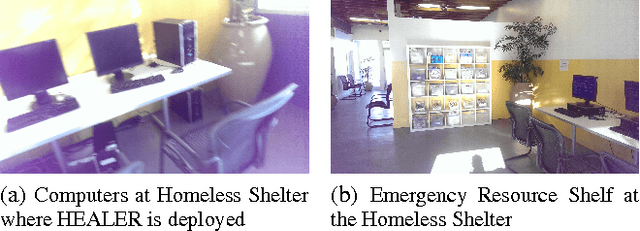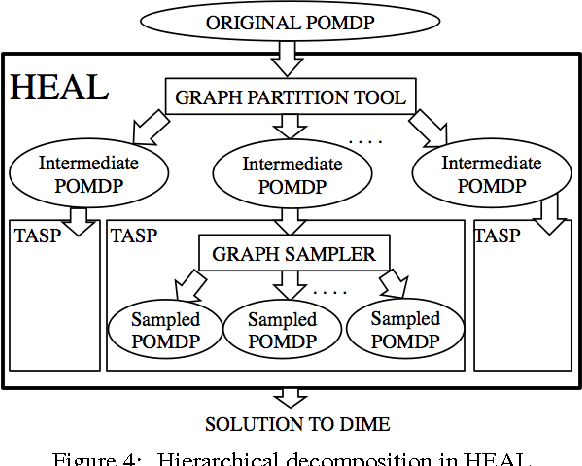Albert Jiang
Ministral 3
Jan 13, 2026Abstract:We introduce the Ministral 3 series, a family of parameter-efficient dense language models designed for compute and memory constrained applications, available in three model sizes: 3B, 8B, and 14B parameters. For each model size, we release three variants: a pretrained base model for general-purpose use, an instruction finetuned, and a reasoning model for complex problem-solving. In addition, we present our recipe to derive the Ministral 3 models through Cascade Distillation, an iterative pruning and continued training with distillation technique. Each model comes with image understanding capabilities, all under the Apache 2.0 license.
A Matter of Interest: Understanding Interestingness of Math Problems in Humans and Language Models
Nov 11, 2025Abstract:The evolution of mathematics has been guided in part by interestingness. From researchers choosing which problems to tackle next, to students deciding which ones to engage with, people's choices are often guided by judgments about how interesting or challenging problems are likely to be. As AI systems, such as LLMs, increasingly participate in mathematics with people -- whether for advanced research or education -- it becomes important to understand how well their judgments align with human ones. Our work examines this alignment through two empirical studies of human and LLM assessment of mathematical interestingness and difficulty, spanning a range of mathematical experience. We study two groups: participants from a crowdsourcing platform and International Math Olympiad competitors. We show that while many LLMs appear to broadly agree with human notions of interestingness, they mostly do not capture the distribution observed in human judgments. Moreover, most LLMs only somewhat align with why humans find certain math problems interesting, showing weak correlation with human-selected interestingness rationales. Together, our findings highlight both the promises and limitations of current LLMs in capturing human interestingness judgments for mathematical AI thought partnerships.
SounDiT: Geo-Contextual Soundscape-to-Landscape Generation
May 19, 2025Abstract:We present a novel and practically significant problem-Geo-Contextual Soundscape-to-Landscape (GeoS2L) generation-which aims to synthesize geographically realistic landscape images from environmental soundscapes. Prior audio-to-image generation methods typically rely on general-purpose datasets and overlook geographic and environmental contexts, resulting in unrealistic images that are misaligned with real-world environmental settings. To address this limitation, we introduce a novel geo-contextual computational framework that explicitly integrates geographic knowledge into multimodal generative modeling. We construct two large-scale geo-contextual multimodal datasets, SoundingSVI and SonicUrban, pairing diverse soundscapes with real-world landscape images. We propose SounDiT, a novel Diffusion Transformer (DiT)-based model that incorporates geo-contextual scene conditioning to synthesize geographically coherent landscape images. Furthermore, we propose a practically-informed geo-contextual evaluation framework, the Place Similarity Score (PSS), across element-, scene-, and human perception-levels to measure consistency between input soundscapes and generated landscape images. Extensive experiments demonstrate that SounDiT outperforms existing baselines in both visual fidelity and geographic settings. Our work not only establishes foundational benchmarks for GeoS2L generation but also highlights the importance of incorporating geographic domain knowledge in advancing multimodal generative models, opening new directions at the intersection of generative AI, geography, urban planning, and environmental sciences.
INT: An Inequality Benchmark for Evaluating Generalization in Theorem Proving
Jul 06, 2020



Abstract:In learning-assisted theorem proving, one of the most critical challenges is to generalize to theorems unlike those seen at training time. In this paper, we introduce INT, an INequality Theorem proving benchmark, specifically designed to test agents' generalization ability. INT is based on a procedure for generating theorems and proofs; this procedure's knobs allow us to measure 6 different types of generalization, each reflecting a distinct challenge characteristic to automated theorem proving. In addition, unlike prior benchmarks for learning-assisted theorem proving, INT provides a lightweight and user-friendly theorem proving environment with fast simulations, conducive to performing learning-based and search-based research. We introduce learning-based baselines and evaluate them across 6 dimensions of generalization with the benchmark. We then evaluate the same agents augmented with Monte Carlo Tree Search (MCTS) at test time, and show that MCTS can help to prove new theorems.
Using Social Networks to Aid Homeless Shelters: Dynamic Influence Maximization under Uncertainty - An Extended Version
Jan 30, 2016



Abstract:This paper presents HEALER, a software agent that recommends sequential intervention plans for use by homeless shelters, who organize these interventions to raise awareness about HIV among homeless youth. HEALER's sequential plans (built using knowledge of social networks of homeless youth) choose intervention participants strategically to maximize influence spread, while reasoning about uncertainties in the network. While previous work presents influence maximizing techniques to choose intervention participants, they do not address three real-world issues: (i) they completely fail to scale up to real-world sizes; (ii) they do not handle deviations in execution of intervention plans; (iii) constructing real-world social networks is an expensive process. HEALER handles these issues via four major contributions: (i) HEALER casts this influence maximization problem as a POMDP and solves it using a novel planner which scales up to previously unsolvable real-world sizes; (ii) HEALER allows shelter officials to modify its recommendations, and updates its future plans in a deviation-tolerant manner; (iii) HEALER constructs social networks of homeless youth at low cost, using a Facebook application. Finally, (iv) we show hardness results for the problem that HEALER solves. HEALER will be deployed in the real world in early Spring 2016 and is currently undergoing testing at a homeless shelter.
 Add to Chrome
Add to Chrome Add to Firefox
Add to Firefox Add to Edge
Add to Edge